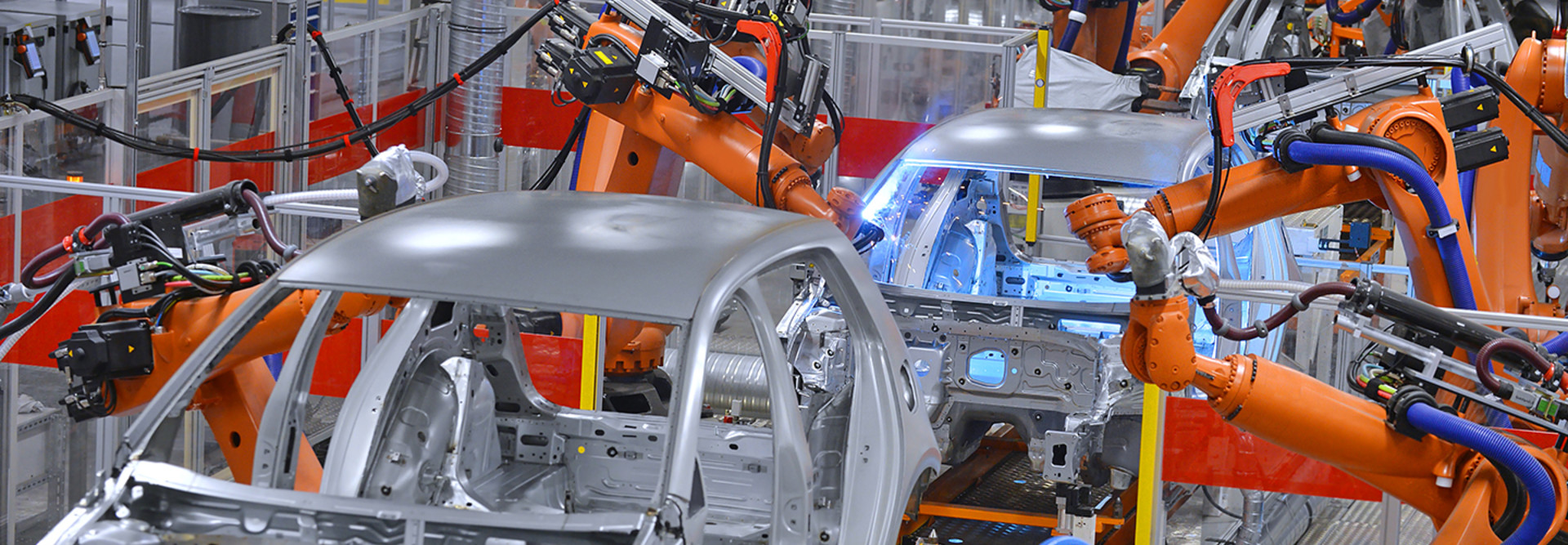4 Tips to Prep Students for Careers That Won’t Be Automated
Today’s educators can ensure that students will be ready for a tech-filled college experience and eventual career, but how do they avoid preparing students for a job that will be taken over by a robot in the future?
Using data from the Bureau of Labor Statistics, Bloomberg created an infographic that outlines the careers most likely to become automated in the coming years. The research reveals that nearly half of U.S. jobs are at risk of automation, with low-income jobs like cashier, waiter and personal care aide at the highest risk.
As schools look to get students future-ready, here are four tips to help them navigate increasingly automated career fields.
1. Leverage Data to Prep Students for College Success
Bloomberg’s research indicates that earning a college degree is a big step to securing a job less likely to be at risk for automation. To help students succeed on the way to college, K–12 schools are establishing a data infrastructure to predict risks and intervene before students fail.
After learning that its graduates were struggling to finish college, New York City public high schools began using data on past students to identify and remediate the mismatch between their curriculum and college work.
2. Consider Tech Credentialing Alternatives to College
However, a college degree can’t always insulate workers from automation. In its analysis of the research, Education Week reports that accountants, auditors, loan officers and paralegals — all jobs that require a degree — are also at high-risk for automation.
Research has even found that the payoff for a college graduate from a low-income background is less than a student from an upper-middle-class background.
Some schools are working to give students alternatives to choosing a career path that requires a college degree and one that doesn’t. Warren County High School in Tennessee introduced a technical education field called mechatronics, which combines electronics and engineering and is used in the automation of many manufacturing systems.
“With only a high school diploma and an entry-level mechatronics certification, teenagers can earn more than $45,000 a year here in rural Tennessee,” reports Education Week.
Across the state, school districts are revamping their technical education programs to reflect industry needs and help students be ready to enter the workforce and make a living.
3. Teach Students Soft Skills with Tech Skills
While technological experience is an important part of teaching students to be future-ready, tech industry employees indicate that certain “soft skills” are very important to career success.
“I think the one thing to keep in mind is that it’s impossible to say what technical skills people are going to need in 10 or 20 years,” says Twitter software engineer Ryan Greenberg in an EdSurge podcast. “I think that necessary job skills actually have to be a little bit higher level than specific technology.”
Greenberg and other tech industry employees say that clear written and spoken communication skills, as well as problem-solving abilities and critical thinking are integral to success.
These kinds of skills are also less likely to be automated and mimicked by computers.
4. Foster Real-World Partnerships
Like the technical education programs in Tennessee, other schools have embraced the technology used by industries in their communities and created partnerships with local businesses and employers.
For example, a Detroit-area school has rolled out virtual reality tools so that students can study automotive prototypes and learn to engineer them.
In Massachusetts, Atlantis Charter School has forged a partnership with local businesses and the Massachusetts Institute of Technology to introduce its students to the engineering design process they’ll need in college and future career paths.
“If we can produce kids that are going to great colleges to do great work and are prepared to enter high-tech jobs or the jobs of the future that are in this area, there’s sort of this idea that we’re contributing to a rising tide that lifts all boats,” says Atlantis’ executive director, Robert Beatty, in an EdTech article.









